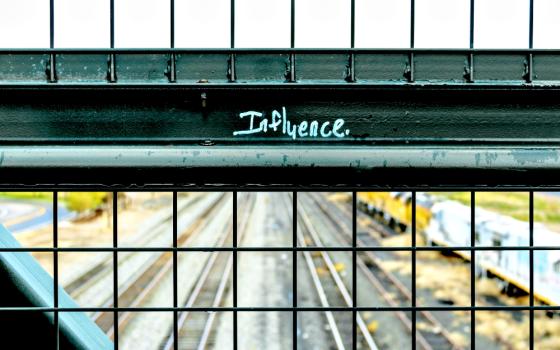Beloved, whatever is true, whatever is honorable, whatever is just, whatever is pure, whatever is pleasing, whatever is commendable, if there is any excellence and if there is anything worthy of praise, think about these things. Keep on doing the things that you have learned and received and heard and seen in me, and the God of peace will be with you (Philippians 4:8-9).
During the first week of April, May and July, I attended funerals for three people taken rather suddenly from the lives of their loved ones. None of them was famous. They were not politicians or in the public eye. They did not own large companies or contribute millions of dollars (that I know of), yet they influenced the lives of many, many others every single day simply being the good and loving people God created them to be.
As I age and my role in life, family, workplace and world changes, I strive to remember that my influence remains. I may not be able to "do" what I used to do, but I can always be kind, understanding, loving and respectful of all living creatures and our hurting planet.
The Oxford dictionary defines influence as "the capacity to have an effect on the character, development, or behavior of someone or something, or the effect itself." We know that influence isn't bound by time or age. Author Dr. Alex Lickerman writes, "We're always exerting influence simply by being who we are, saying what we say, and doing what we do. The only real choice we have in the matter is whether or not the influence we exert is good or bad."
Consciously or unconsciously, the people around us look at the example we provide. Whether healthy or ill, rich or poor, stressed or relaxed, alone or with others, I have the wherewithal to be a positive influence on my piece of the world. I/we have all that it takes to be a presence of love and blessing in the world. My/our little piece of the world influences other pieces of the world, and together we make a difference in the global/cosmic reality.
As a covenant companion (associate) of a vowed religious community, I am frequently in conversations about what we "do." It isn't unusual to have a vowed sister or associate say they can no longer "do" anything and can "only" pray. When did prayer become an "only"?
It is time for us as communities of associates and religious to elevate and celebrate the ministry of tenderness. A ministry of tenderness calls us to let go of old expectations, agendas and judgments. It calls for vulnerability, true humility, deep listening and, most importantly, trust. Trust in God and trust in one another.
The influential and inspirational author Henri J.M. Nouwen wrote, "When we honestly ask ourselves which person in our lives means the most to us, we often find it is those who, instead of giving advice, solutions, or cures, have chosen rather to share our pain and touch our wounds with a warm and tender hand. The friend who can be silent with us in a moment of despair or confusion, who can stay with us in an hour of grief and bereavement, who can tolerate not knowing, not curing, not healing and face with us the reality of our powerlessness, that is a friend who cares."
In a society fixed upon quick answers and fast solutions, are we not called to be countercultural? Is it possible for us to care for each other without advising or fixing? Is it possible to pray for one another without knowing the outcome? Is it possible to explore "what might be" without predefined structure?
In 2014, consultant Mark Clark encouraged vowed communities become pioneer communities. I have paraphrased his comments to be inclusive of the associates who are committed to the same charism and are exploring similar issues about the future:
Religious and their associates are called to create new prototypes of community life that in the future will be taken for granted. Though intentionally small, these communities can choose to be influential in the larger global reality. To do so, these communities will need to have the internal fortitude and the trust that will make sense only in its evolution rather than its definition. ... The challenge is to imagine a vision that engages the heart while inviting the many gifts and talents of others to achieve the dream. ... God is inviting us to once again create a direction that will emerge over time.
As we continue to deepen our conversations about the future, perhaps we could begin by reflecting how we personally and communally desire to influence our piece of the world and ultimately our global reality. How we might personally and collectively contribute to the ministry of tenderness. There is nothing that can hold us back from being a positive influence individually or collectively. The choice is ours.
How do you choose to influence your world and our global/cosmic reality?
How might our communities be called to influence the global/cosmic reality?
[Jeanne Connolly has been a covenant companion (or associate) with the Wheaton Franciscans in Wheaton, Illinois, for more than 22 years, and has served as their director of charism and mission since 2007.]

